Medical terminology is used every day throughout the healthcare industry by doctors, nurses, pharmacists, and medical assistants. It is also used by billing specialists and medical coders as well as insurance companies to document conditions, process claims, and enable patients to apply for their insurance coverage.
Healthcare terminology is important for three key reasons: First, it enables medical specialists to communicate seamlessly with one another. Second, it serves as a universal language to use when diagnosing conditions and ailments in patients. And third, it enables healthcare workers to give and follow orders to treat patients.
What Is Medical Terminology?
Medical terminology refers to the words and phrases used to describe elements of the human body and how they function. Professionals also use it to describe diseases, illnesses, and diagnoses assigned by healthcare professionals.
Here is a look at the basics and application:
- Who: Doctors, registered nurses, and physician assistants are just a few of the many healthcare professionals who use it.
- What: It may refer to symptoms, official diagnoses, treatment protocols, and medication instructions.
- When: Healthcare professionals use it when diagnosing and treating patients. Professionals also use it during medical coding and billing processes.
- Where: It is used in hospitals, surgery centers, private practices, and within healthcare management organizations.
- How: In many cases, the terminology is abbreviated for documentation ease. For example, PRN means \”as needed\” when taking medications.
When Is Medical Terminology Used?
Professionals use medical terminology throughout the patient care journey. From the moment a patient enters the front door of a hospital or doctor\’s office to the time of discharge, healthcare providers depend on key medical terminology to ensure that patients receive the proper treatment.
Here is a look at some specific points in the patient care journey when professionals use medical terminology:
- During intake or admission: For example, an intake specialist may note that a patient \”presents with fever and chronic gastritis.\”
- During an initial examination: Providers often use terminology to describe abnormalities they find during a brief initial examination.
- Throughout a hospitalization: Doctors and nurses regularly use terminology when documenting changes in a patient\’s condition.
- During discharge planning: Professionals use it when preparing to discharge a patient after a hospital stay.
- When prescribing medications: Doctors will use common phrases or abbreviations for prescriptions. For instance, \”BID\” means twice daily.
- During the coding and billing process: It is the cornerstone of efficient and accurate medical billing.
In addition to these specific cases, people use medical terminology during treatment team meetings, healthcare management meetings, and nursing shift changes. Finally, researchers and experts commonly use it when presenting their findings.
How Can You Learn Medical Terminology?
You can learn medical terminology through a variety of channels. The two most popular ways are to take specific courses offered by colleges and universities or to participate in featured programs and trade school training platforms.
For example, Southern Careers Institute (SCI) offers medical programs that feature courses in medical terminology. SCI\’s programs train students to become medical assistants, nurse aides, medical office managers, and specialists in medical billing and coding.
In addition to structured education and training programs, you can learn terminology simply by working in the healthcare field.
Here are some other resources for learning medical terminology:
- Textbooks: You can purchase textbooks recommended by colleges and medical trade schools.
- Scientific Journals: While the terminology is often quite advanced, scientific journals feature articles that are rich with medical phrases.
- Training Manuals: Some hospitals, surgery centers, and medical offices provide employees with training manuals filled with commonly used terms.
- Educational Videos: The internet is full of videos and presentations from doctors who regularly use it in their speeches.
- Volunteer work: You can learn commonly used medical phrases just by volunteering at a local hospital or healthcare organization.
What Purpose Does Medical Terminology Serve?
Medical terminology serves a variety of important purposes for healthcare specialists who work with patients as well as those who work behind the scenes in billing and coding.
In general, healthcare terminology offers three key benefits:
- Improve efficiency: Using standardized terminology – especially abbreviations or acronyms – can help patients receive the care and medications they need faster. This allows facilities to see a greater number of patients and improve their overall efficiency.
- Facilitate communication: The average doctor sees roughly 20 patients per day. Nurses, aides, and other healthcare providers see a similar number of patients, and treatment team meetings involving multiple providers are commonplace at hospitals. By using the same universal medical terminology to provide progress updates and discuss treatment plan changes, all members of the patient\’s treatment team can communicate more easily.
- Standardize documentation: Healthcare regulations and insurance company policies require timely and accurate documentation. By using standardized medical terminology to document patient symptoms and diagnoses, healthcare workers can make a seamless transition from one job to the next.
What are Medical Job Education Requirements?
Learning medical terminology is an important part of training to enter the healthcare field. Whether you long to become a medical doctor, a physical therapist, a nurse aide, or a medical office specialist, you need to ensure that you fulfill the proper educational requirements.
The path to mastering key medical phrases and abbreviations begins with enrollment in a medical terminology course.
By learning the most common medical terminology used with patients and in the coding profession, you will be positioned to excel in your on-campus training program or your online training courses. Most importantly, these courses will help you to succeed in your career as a healthcare worker.
Southern Careers Institute (SCI) offers a variety of training programs to prepare you for a rewarding career in the healthcare field. SCI\’s programs include courses in medical terminology to ensure that you are properly prepared for an exciting career in medical billing and coding, medical office specialist, nurse aide, and medical assistant.
We encourage you to contact us today to learn why aspiring healthcare professionals across Texas choose SCI to prepare them for careers in the medical field. We look forward to introducing you to some of the many programs at SCI that enable you to apply the medical terms that you master!
Sources
- https://www.physicianleaders.org/news/how-many-patients-can-primary-care-physician-treat
- https://selecthealth.org/blog/2016/08/25-important-medical-terms-you-need-to-know
Blog Disclaimer: Information stated in this blog is for general information purposes only. SCItexas.edu does not assume or guarantee income earning potential or salary expectations based on the programs offered at Southern Careers Institute. Career and program information stated in this blog does not guarantee that programs and specifics are offered at Southern Careers Institute.












